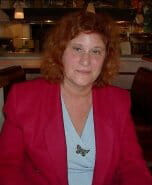By Linda Jay Geldens
Linda Jay is a very experienced book editor and member of the Board of Directors of the Bay Area Independent Publishers Association (BAIPA). Her last contribution to the blog was 6 Ways Copyeditors Make Your Book Better. Today she gives us her take on the practice known as “self-editing.”
Recently I’ve noticed a topic popping up more and more in books, workshops and seminars, even those offered by Writer’s Digest. Targeted mostly toward indie authors (perhaps you’re in that category), these books, workshops and seminars encourage writers to self-edit their own work before they self-publish.
Now, self-editing is fine. Going through your manuscript’s rough drafts several times over a period of weeks searching for errors and omissions, perhaps even reading the text aloud to catch awkward phrasing or redundancies or overcomplicated construction, is certainly not going to hurt—and possibly might even improve—your writing.
But let’s face it, there’s only so much self-editing an author can do. Frankly, you as the author are too close to the subject matter to be objective, even if you take a break from the material and come back to it later.
In my opinion—and I’m not just saying this because I happen to be an experienced book manuscript copyeditor—an author truly needs an editor’s fresh perspective to make his or her writing as excellent and polished as it can possibly be.
Recently I made editorial suggestions to an author, pointing out missing information and details in her novel; of course, she hadn’t left out facts intentionally. But on the other hand, she hadn’t noticed that she needed to “fill in the blanks” in that particular section of text so that a reader could understand the characters in-depth.
I also offered specific ideas for improving the text that the author hadn’t thought of, but was happy to implement immediately:
- short titles summing up each chapter,
- translations of Latin terms and phrases so that the reader will understand their meaning,
- clarification and explanation of obscure historical points,
- easily understood transitions between scenes.
The Role of Traditional Publishers?
Traditional publishers no longer pay for the routine editing of manuscripts, and self-publishers often believe that they cannot afford to hire a professional editor.
If you as an author have done your best self-editing but are still convinced that you want a professional editor to work with you, ask the editor to work on just a few chapters at a time. That way, it’s within the realm of financial possibility.
Far beyond being merely a spell-checker, a good copyeditor is essentially able to “hear” what an author has written, and sense how a piece of writing will be received by other readers. An experienced copyeditor will also notice if the writer has made unfounded assumptions about the subject matter or the intended audience.
In other words, self-editing is indeed useful, but it will never take the place of the opinions and comments of a professional wordsmith.
The two processes should be used in tandem.
 Linda Jay Geldens is a longtime publishing professional who has edited over 60 book manuscripts in the past three years. She specializes in the genres of: business, novels, memoirs, spirituality, sci fi, academic topics and children’s. Linda is also a promotional copywriter. Contact her at [email protected], visit her site at www.LindaJayGeldens.com, or connect on Twitter at @LindaJayGeldens.
Linda Jay Geldens is a longtime publishing professional who has edited over 60 book manuscripts in the past three years. She specializes in the genres of: business, novels, memoirs, spirituality, sci fi, academic topics and children’s. Linda is also a promotional copywriter. Contact her at [email protected], visit her site at www.LindaJayGeldens.com, or connect on Twitter at @LindaJayGeldens.
Photo credit: Nic’s events via photopin cc


